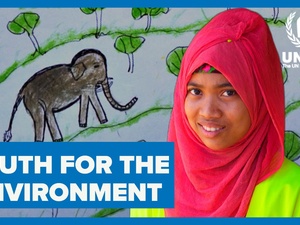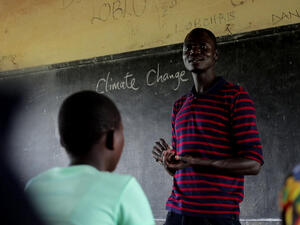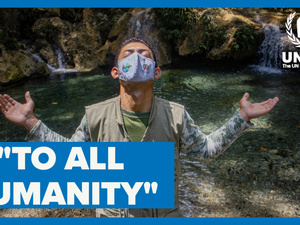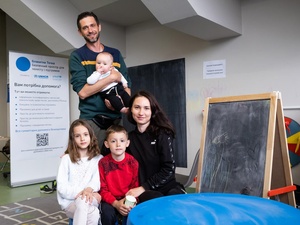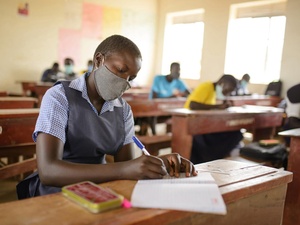Dutch children learn to cook dessert on solar cookers used in Nepal camps
Dutch children learn to cook dessert on solar cookers used in Nepal camps
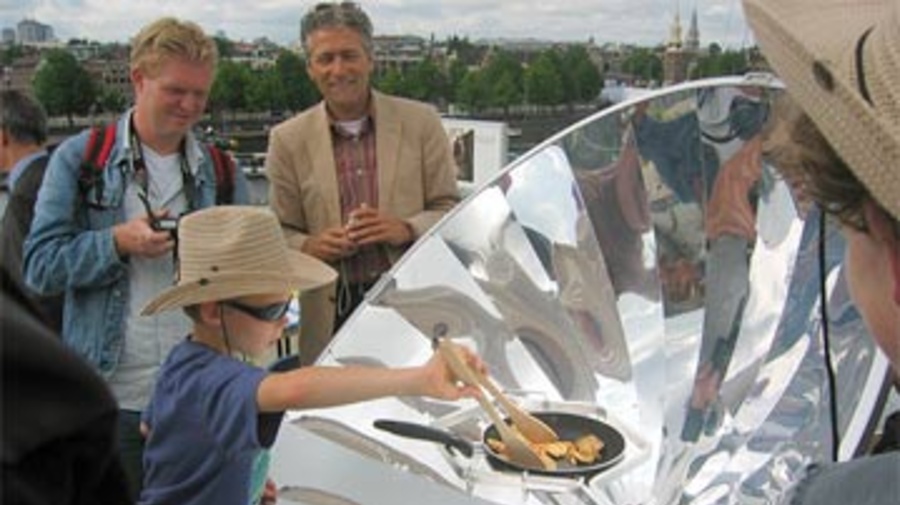
Sunburn. A schoolboy learns how to cook a traditional Dutch pancake on a solar cooker.
AMSTERDAM, The Netherlands, July 5 (UNHCR) - A group of Dutch schoolchildren visiting Amsterdam's Nemo Science Museum recently tried their hand at making traditional pancakes in solar cookers used by refugees in Nepal.
The cookery class, which took place on Wednesday at the opening of an exhibit on the rooftop terrace of the museum, was intended to raise awareness about the lives of refugees and the environmental problems they face.
It was offered as part of an exhibit of photographs on the eve of World Climate Day from seven refugee camps in eastern Nepal which house more than 100,000 refugees originating from Bhutan.
Museum staff showed the excited children how the cooker works and helped them make poffertjes, a very sweet Dutch treat that looks like small pancakes. They are usually prepared in a special cast-iron or copper pan with several shallow indentations in the bottom, but the solar cookers seemed to work fine.
The refugees in Nepal have traditionally used kerosene provided by UNHCR for cooking or gathered firewood from areas surrounding the camps. But kerosene is expensive and its fumes cause health problems, while local villagers objected to deforestation by the refugees. The solar cookers, however, provide a much cheaper and more environmentally friendly way to prepare food.
The UN refugee agency, Stichting Vluchteling (Netherlands Refugee Foundation) and the Vajra Foundation have teamed up to distribute these solar cookers in the Nepalese camps. The project in Nepal is financed by the Dutch Postcode Lottery, which has been supporting UNHCR's work worldwide since 2002.
Stichting Vluchteling worked with the Vajra Foundation to develop the cookers, which are now being largely produced in Nepal. UNHCR and people involved in the project hope it can be extended to refugee camps in other countries.
By Charlotte Vandierendonck in Brussels, Belgium



